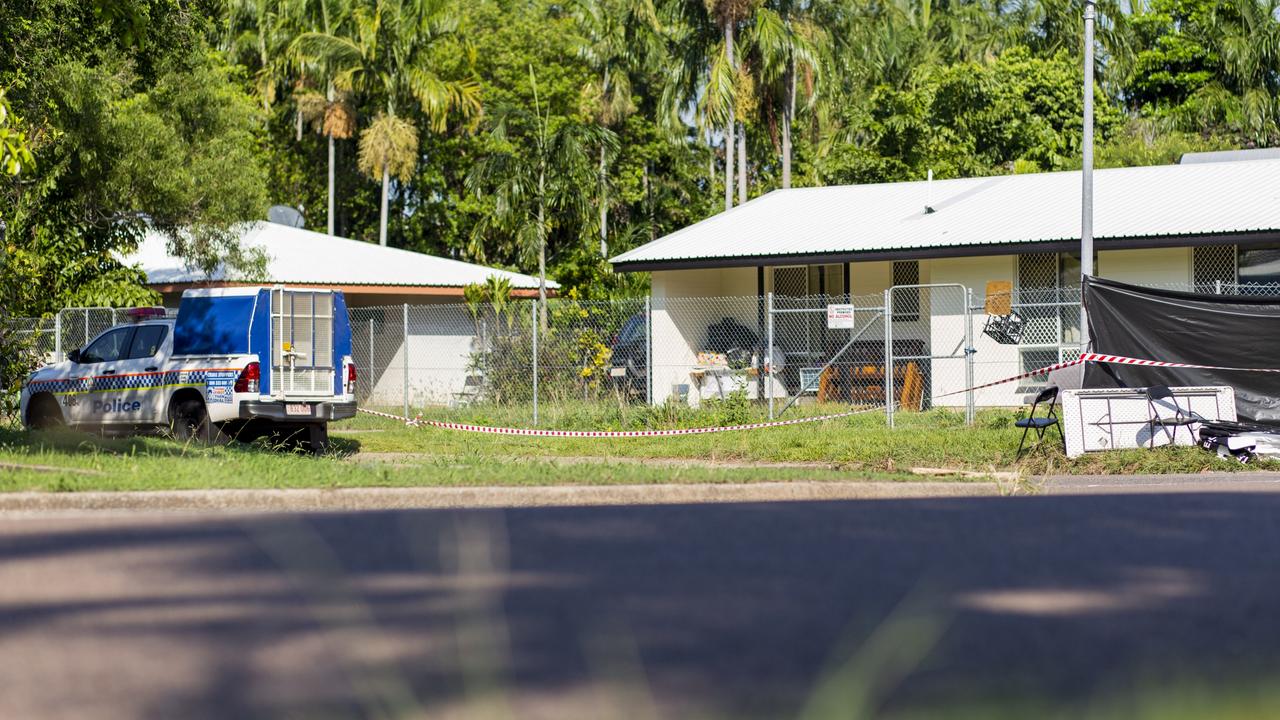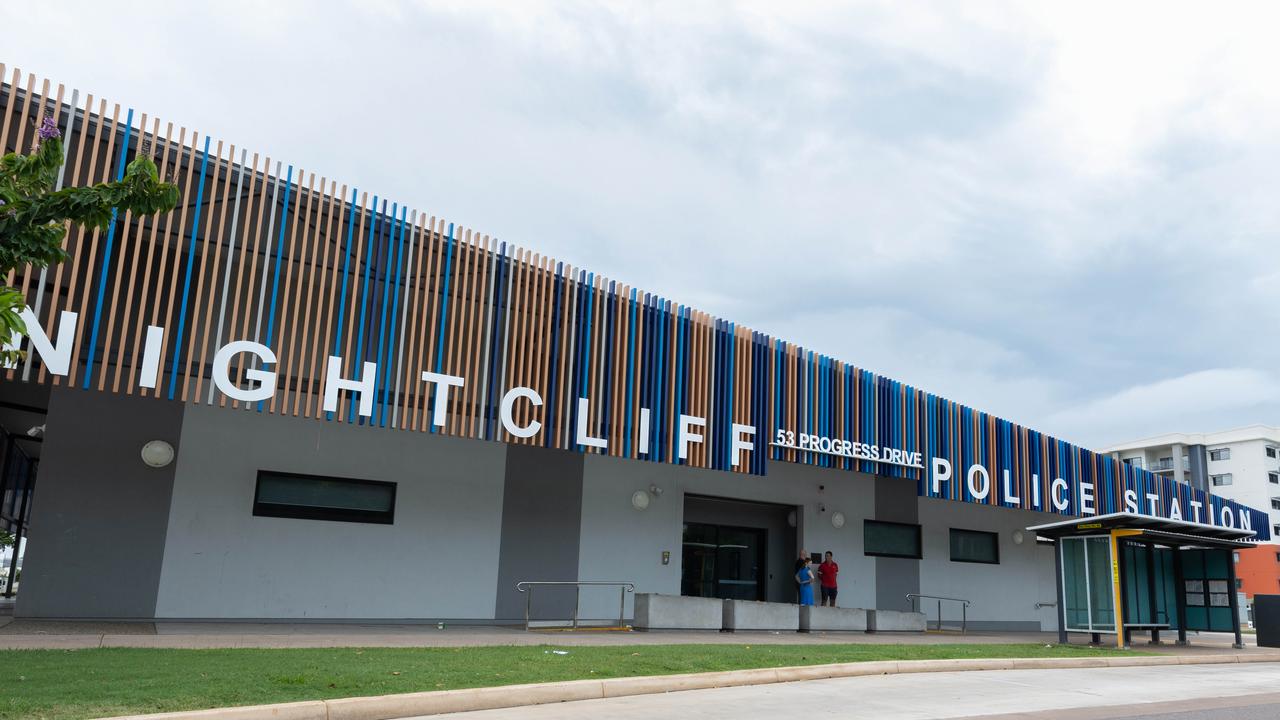Zach Rolfe to be grilled on use of force if last ditch legal bid in Kumanjayi Walker inquest fails
Zach Rolfe will be forced to explain his alleged ‘tendency to want to get his man, no matter what’ at an inquest in Alice Springs next month, if a bid to have the evidence excluded fails.

Police & Courts
Don't miss out on the headlines from Police & Courts. Followed categories will be added to My News.
Zach Rolfe will be forced to explain his alleged “tendency to want to get his man, no matter what” at an inquest into the death of Kumanjayi Walker next month, if a bid to have the evidence excluded fails.
Constable Rolfe was acquitted on all charges by a Supreme Court jury in March following Mr Walker’s shooting death during an attempted arrest in Yuendumu in 2019.
The first month of inquest hearings wrapped up in the Alice Springs Local Court on Thursday, where Constable Rolfe’s lawyers applied to have eight categories of evidence scrubbed from the agenda before he takes the stand.
Counsel assisting Peggy Dwyer told the court the categories included “the honesty of Constable Rolfe’s application to join the NT Police”, his use of force and disciplinary history, and “alleged discrimination by NT Police against Indigenous persons”.
Dr Dwyer said they also included “the possibility of prior recreational drug use by Constable Rolfe while a serving member of the police force” and drug and alcohol testing, saying “those two are related”.
In arguing for all the evidence to be received, Dr Dwyer read from a report from NT Police use of force expert, Senior Sergeant Andrew Barram, who found Constable Rolfe “failed to use effective communication” and “appears to prefer to go hands on”.
“In those five incidents, Constable Rolfe chose to use a tactical option that was not reasonable, necessary, proportionate or appropriate, and his choice of option in those cases had resulted in injuries to subjects and the potential to injure to himself, which could easily have been avoided,” she said.
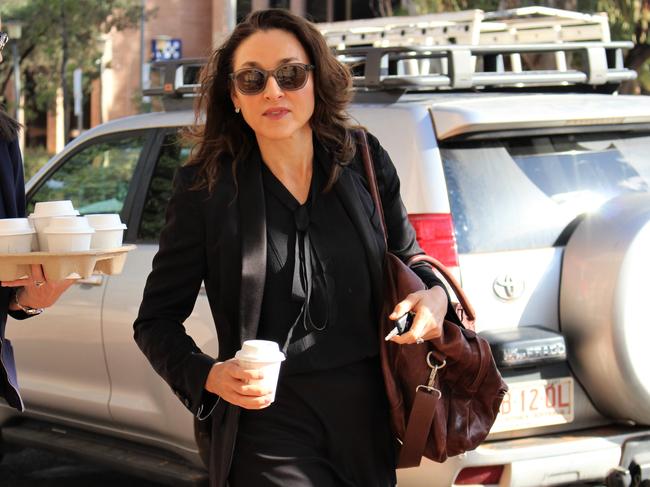
“In his opinion, Constable Rolfe demonstrated a tendency to want to get his man, no matter what, and paid little or no regard to the consequences of his actions, which had resulted in quite severe and totally unnecessary injuries to subjects in some cases.
“That opinion, in my respectful submission is likely to be relevant for your honour’s consideration and, of course, it is likely to be relevant to be able to put those matter to Constable Rolfe so that has every opportunity to respond to them.”
Dr Dwyer said, if permitted, she would also be asking Constable Rolfe about racist text messages between him and other police officers to find out “how did it, in fact, reflect in his behaviour, if it did”.
She said Constable Rolfe’s application was a “transparent attempt to relitigate” the admissibility of the messages after Territory Coroner Elisabeth Armitage ruled they were obtained legally earlier this month, and hit out at “fake news” to the contrary on social media.
“It is not fair on the public and not appropriate for the public to continue to think that those text messages were unlawfully obtained, they were not,” she said.
“It leads to members of the public being concerned that their text messages might be downloaded and their phones seized randomly — that was what was being suggested on one social media site.
“That is clearly not the case, Constable Rolfe’s messages were downloaded after the phone was seized, after he was arrested for an offence that is the most serious on the criminal calendar, and that is the offence of murder.”
Counsel for the North Australian Aboriginal Justice Agency, Phillip Boulten SC, argued that it would only “become even more clear” why the texts were relevant “when Mr Rolfe, and or other authors of those messages, are called to give evidence”.
“There is left open the possibility that Constable Rolfe, and the other author or authors who are to be called as witnesses, will convince you that, in fact, this was just an example in each instance of police officers under stress letting off steam,” he said.
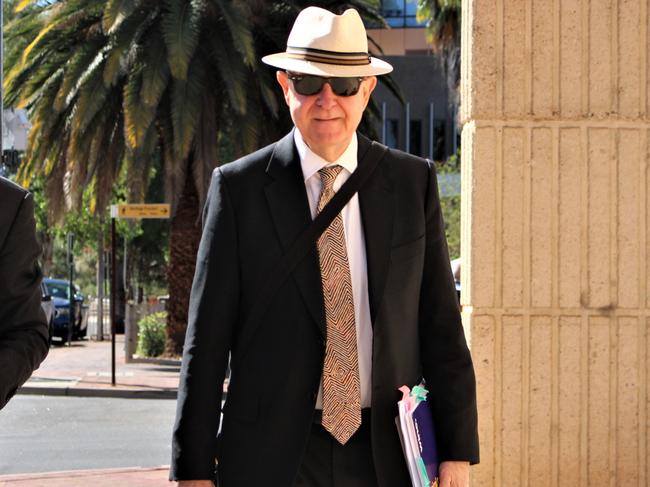
“It’s not the most likely outcome as we see it at the moment, but it’s possible.
“Whether it adds to the body of evidence at the moment about the racist attitudes of Mr Rolfe and some of his colleagues or not, it is relevant and your honour should receive the evidence.”
Parumpurru Committee of Yuendumu Community barrister, Julian McMahon, argued that if NT Police had “a dishonest person, who appears to be racist” and “with a troubling list of use of force complaints”, “then this court needs a deep understanding of how all this happened”.
“On one view, looking at those (body-worn camera) videos, is like looking at an undisciplined paramilitary force, with an assault rifle, going through houses, searching out a target,” he said.
“I doubt this could happen pretty much anywhere else in Australia.”
Constable Rolfe’s barrister, Frank Merenda, largely relied on written submissions filed with the court but denied taking a “tactical approach” to raising the objections when he did.
“Your honour ultimately held, on the last occasion, that our objections, so far as they related to scope, were premature, in the sense that the appropriate time for the bringing of those objections was as and when the evidence was sought to be adduced,” he said.
“The reason we’re here today, as opposed to dealing with these objections later on, is to say that we were asked by counsel assisting, as part of the programming, to deal with these issues.”
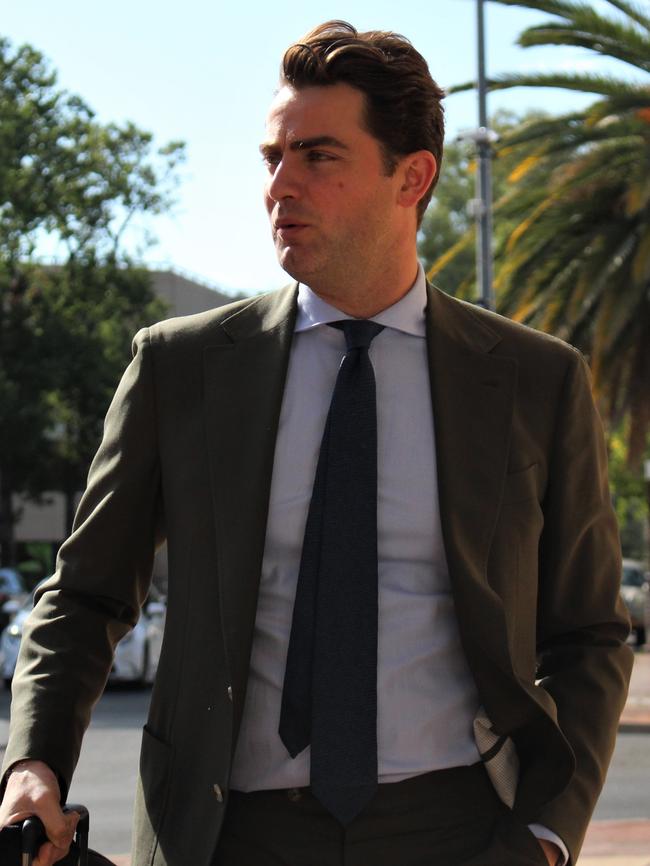
Constable Rolfe was originally scheduled to give evidence over three days this week but will now likely take the stand next month, and Ms Armitage will hand down her ruling when the inquest resumes on October 10.
On Wednesday, Constable Rolfe’s legal team and others had flagged an “obvious and extreme” conflict that interrupted the evidence of Superintendent Jody Nobbs.
The inquest was adjourned until the afternoon after NT Police lawyer, Ian Freckelton KC, raised “a matter of fundamental fairness” arising from evidence given by Superintendent Nobbs earlier in the week.
When the hearing resumed, Constable Rolfe’s barrister, David Edwardson KC, said it was now “plain from what took place before lunch”, that Dr Freckelton was “in a position of conflict” in relation to Constable Rolfe’s Immediate Response Team.
“In my submission, that necessarily arose, or became obvious and extreme, as a result of the cross examination, or examination, of Superintendent Nobbs yesterday,” he said.
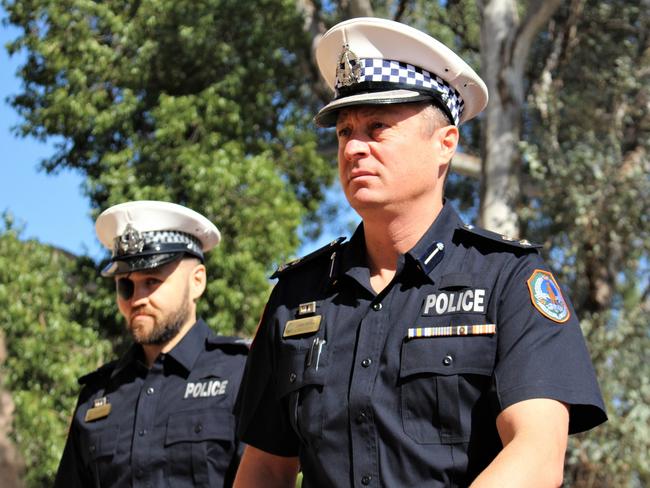
“That is, deploying him in connection with him expressing opinions and the like about various members of the IRT.”
Coroner Elisabeth Armitage responded that it was “always on the cards” that Superintendent Nobbs would be questioned about the IRT’s deployment on the day of the shooting.
“His views as to what they were deployed for, and whether or not they behaved in a manner consistent with that deployment, was always a matter for investigation,” she said.
But Mr Edwardson insisted that “the issue of conflict has now arisen, regardless”.
“The issues that were ventilated, none of us were on notice about at all,” he said.
“They don’t exist in any of the statements, they don’t exist in the transcript at trial, they don’t exist in committal (transcripts), and there was no forewarning of it.
“The consequence of that is that the conflict has arisen such that members of the IRT team are now exposed, and exposed in a way that is obvious and palpable.”
Ms Armitage had already deferred the rest of Superintendent Nobbs’ evidence until another day but said the issues canvassed “clearly are arising on the material in the brief”.
Counsel assisting, Patrick Coleridge, said he would confine his questions to the next witness, Senior Sergeant Shaun Furniss, to his “limited role” on the day, but rejected “the notion there was no forewarning”.
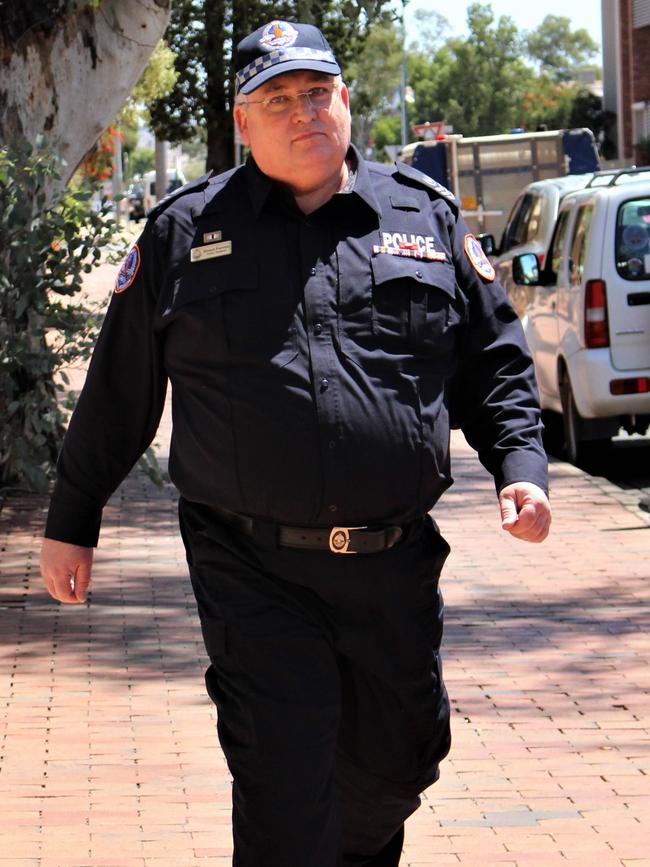
“We are all adults, we are legal professionals, the brief was served,” he said.
“In my respectful submission, it would be apparent to any competent lawyer reading that brief, that the individual who was instrumental in developing the plan might have opinions about how the plan was executed — he authorised it, your honour.”
In his evidence, Sergeant Furniss said he spoke briefly with Superintendent Nobbs about the IRT deployment but had little other involvement after a tourist bus crashed and rolled over on a remote road that afternoon.




